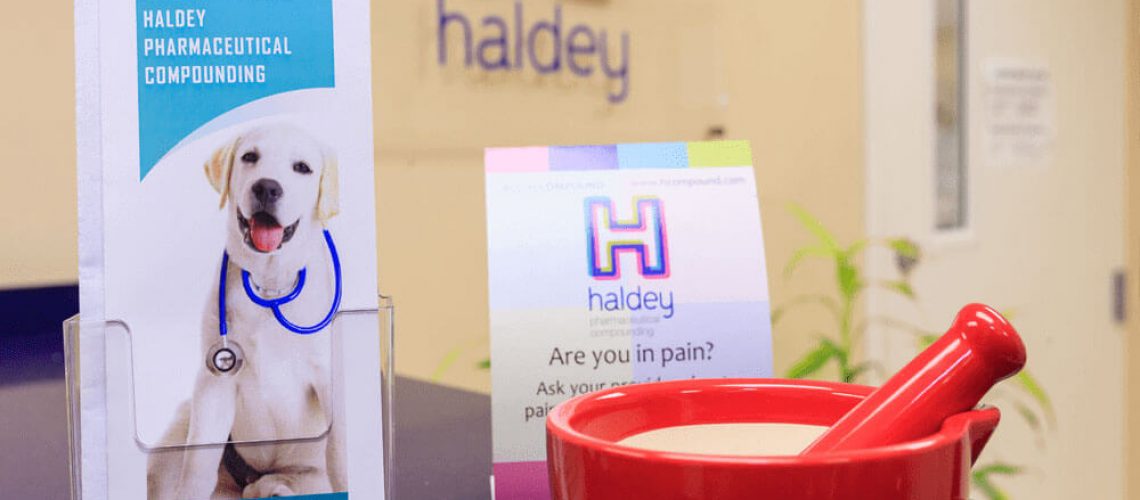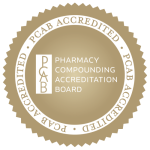If you are a small animal veterinarian, you see mainly dogs and cats. And you probably know that, according to statistics, there are 86.4 million pet cats in the US compared to 78.2 million pet dogs. The numbers tell us that cats are the most popular pet, yet you have more canine patients visiting your office. This is explained by both the myths surrounding cats’ health problems compared to dogs and by the specifics surrounding felines as a species.
Cats are no more or less healthy than dogs, but they are very good at hiding the symptoms of poor health. Caring pet owners notice changes in their cat’s health and bring them to your office. Fearfulness is a common trait in cats that can make them difficult patients when medication needs to be administered. Taking action will require careful thinking when choosing the most appropriate treatment option for a feline patient. Pharmaceutical compounding allows you to thoroughly and carefully customize the medicinal therapy for this finicky species.
Compounded Medications Offer What Commercially Available Drugs Do Not
Compounded Feline Medications can be a suitable alternative to commercially available medications considering that there are very limited commercially approved veterinary medications for cats. Most of the drugs intended for feline patients are available as off-label use of either approved human or other animal species drugs. Many veterinarians consider cats an “off-label” species for that reason.
It already appears clear that feline compounded prescriptions are a necessity when treating cats. Compounded medications not only fill the need but also come with a series of advantages. The major advantage is the ability for the veterinarian to offer truly personalized care to the feline patient to assure the highest potential for compliance. Comfort and confidence for the pet owner in administering the customized medication is the second advantage when prescribing compounded medications.
Customizing Medication for Personalized Care
There are many scenarios when the advantages of prescribing compounded feline medications become obvious. For example, adding the cat’s favorite flavor to an approved drug can help the owner administer the medication with greater ease. Cats usually don’t like very much sweetness and hate bitter tastes; flavored oral oil suspension can be a preferred option to tablets for this reason. Fish, beef, liver, chicken, cheese, bacon, molasses, peanut butter, butterscotch, and marshmallow are some of the flavors that can be used in compounded medications for cats.
Flavored medication can be incorporated in the cat’s food in the exact recommended dose. Not all cats are the same size, weight, age, stage and present with the same severity of the condition being treated. Each cat will need a specific medicine strength based on these criteria. This same advantage applies when other routes of administration are used.
In some cases, when the feline patient has decreased appetite or refuses the medicated food, transdermal or topical administration of certain medications may be an advantageous option. This option became available only a few years ago due to developments in pharmaceutical compounding in creating uniquely designed bases for veterinary patients. Amlodipine, Cisapride, Methimazole, Amitriptyline, Clomipramine, Zonisamide, are just a few examples of drugs that can be administered in this manner and this is possible only through compounding. Because cats are known to be meticulous groomers, ingestion of topically applied medication must be considered and possibly flavored with a non-pleasant flavor for the cat, so the patient does not lick the application area.
Compounding to Avoid Complications
The ability to avoid inactive ingredients in some veterinary or human approved drugs for off-label use that may be toxic to cats is facilitated by compounding the medication. Some examples are azo dyes (coloring agents), benzoic acid derivatives (preservatives), essential oils (flea repellant, aromatherapy), ethanol, propylene glycol (solvents), etc.
Careful consideration must be given to the cats’ physiological variations. Many drug classes have deviations in their metabolic pathways that are specific to felines, and they lead to severe toxicities. Limited capacity to conjugate with glucuronide, deficiencies in demethylation and hydroxylation, and failure of the ABCG2 P-gp pump are a few examples of these deviations that limit veterinarians’ treatment options. In most of these situations, a compounded medication alternative can offer the needed therapeutic solution.
The Compounded Advantage
Here are some practical applications reinforcing the advantages of compounding in commonly treated feline conditions:
Behavioral Issues
Cats can display behavior issues with various manifestation and for distinct reasons. Amitriptyline is one of the drugs commonly used to treat this condition. It is available as an approved human drug for off-label use in cats. In an oral oil suspension form, flavored with the cat’s preferred taste, in the exact dose needed, it is frequently the compounded medication of choice. Because Amitriptyline has a very bitter taste, in circumstances when it must be administered for long-time, the oral form may become problematic. Transdermal administration, prepared through compounding, will often become then the chosen route.
Gastrointestinal Conditions
Some of the commonly seen gastrointestinal conditions in cats are usually treated with compounded medications. Cisapride is given to cats to help with the quick passage of food through the digestive tract. It may be used to treat disorders such as megaesophagus, acid reflux disease, megacolon. It is also effective against chronic constipation and some causes of vomiting. The drug was discontinued for human use due to serious side effects. Prescriptions for Cisapride for cats can be filled only at a veterinary compounding pharmacy and made available in a wide range of flavoring options, strengths, and dosage forms.
Metoclopramide is prescribed for the treatment of a wide variety of gastrointestinal problems in animals, including vomiting and gastric motility issues. Approved strengths and dosage forms are not always sufficient to meet the feline patients’ needs. Flavored oral forms, specific strengths, and sometimes combined with other medications, can be a better fit for the veterinary patient. This is possible only through compounding.
Partner with a Trusted Compounding Pharmacy
The list of examples where compounding for cats meets the need can go on and on.
For more examples like these, specific solutions in hard to treat cases, pertinent advice, and creative ideas it is important to cultivate a long-term relationship with a trusted compounding pharmacy.
HALDEY has been developing custom veterinary solutions for years and can be your trusted partner in delivering personalized care to your patients.
Contact us today for a free evaluation of your feline compounding needs.




